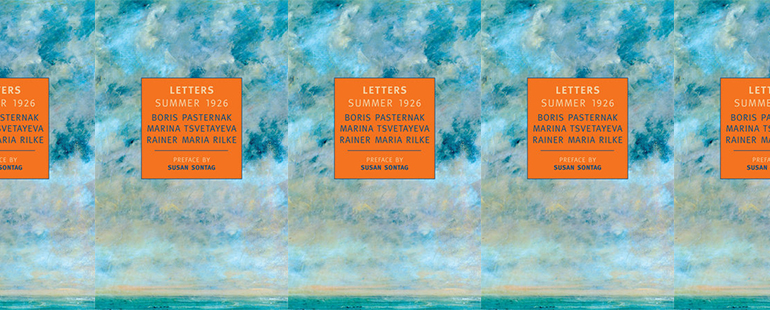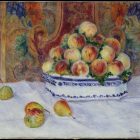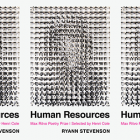Reading Letters Summer 1926: Boris Pasternak, Marina Tsvetayeva, Rainer Maria Rilke

In the summer of 1926, three poets who wished to meet, but couldn’t, wrote letters to one another. Their correspondence was in Russian and German. Its tone was by turns ecstatic and elegiac. The subject was distance or what, in his best-known poem, “Meditation at Lagunitas,” Robert Hass calls “longing. . . because desire is full / of endless distances.” Flat broke and finding it impossible to return to Stalinist Russia, the thirty-four-year-old Marina Tsvetayeva was living in France with her husband and two children, getting by on a Czech fellowship that would soon be withdrawn. Attempting to recover from a spiritual and creative crisis, the thirty-six-year-old Boris Pasternak languished behind in Moscow, with his own family, trying to prove to himself and to others that he was a real poet. Disaffected and suffering from a mysterious illness wrongly self-diagnosed as loneliness, the fifty-one-year-old Rainer Maria Rilke was preparing to leave his roses and empty thirteenth-century stone tower near the town of Veyras, Switzerland, in order to seek relief and company in a nearby sanatorium. Borders, censors, illness, foreign languages, and delayed post stood between them. And yet, the ardent wishes of these three extraordinary people to nevertheless come together—and the expression that the promise to do so took in language—make up one of the most luminous creative exchanges of the early twentieth century. In the course of an otherwise unremarkable summer between the two world wars, the trio spoke to each other as equals and, in doing so, redefined not only the nature of epistolary exchange for one another but also the possibilities inherent in poetic craft.
In her brief preface to the second edition of Letters Summer 1926: Boris Pasternak, Marina Tsvetayeva, Rainer Maria Rilke, published by NYRB Classics in 2001, Susan Sontag speaks of a “god and two worshipers, who are also worshippers of each other (and who we, readers of their letters, know to be future gods).” This is a useful way of defining the initial parameters under which the correspondence was established in December 1925. Leonid Pasternak, Boris’ father, wrote to Rilke from Berlin, where the elder Pasternaks lived in exile, to congratulate him on his fiftieth birthday. In his letter, Leonid, a renowned portraitist, shyly reminded Rilke that they had met decades earlier, in 1899, when Rilke visited Moscow with Lou Andreas-Salomé, the first of two such trips to the country, undertaken at Andreas-Salomé’s behest and designed to nurture Rilke’s growing Russophilia. At the time, Leonid, a professor at the Moscow School of Painting, Sculpture, and Architecture, was illustrating Leo Tolstoy’s serialized last novel, Resurrection; after Rilke contacted him with a letter of introduction, Leonid was able to arrange a meeting between the elderly novelist and the young poet. In the course of making arrangements, they struck up a friendship, which was renewed a year later when Rilke returned to Russia, and the pair met by chance at a train station. Rilke was on his way to Tolstoy’s estate at Yasnaya Polyana; Leonid to Odessa with his young son Boris. In his 1931 autobiography Safe Conduct, the younger Pasternak remembers that “hot summer day [when] our express was about to leave Moscow’s Kursk Station. Just then someone in a dark Tyrolese cape approached our train window.” The memory stayed with him, and his father’s congratulatory note to his old friend, years later, does not fail to mention little Boris now grown up and a poet in his own right.
When Rilke replied to Leonid, acknowledging that he had read his son’s work in French translation and found it delightful, Boris was thrilled; he wrote to the older poet as a “worshipper,” to borrow Sontag’s phrase, exultantly proclaiming: “I love you, as poetry wants to and should be loved, as culture in its progress celebrates, admires, and experiences its own peaks. I love you and can be proud of the fact that I do not lower you by this love.” He also, however, begged Rilke not to reply directly to him—in part because of the censors, though this goes unsaid—but to write to him via another poet whom he knew and worshipped, Marina Tsvetayeva. The letter praises her as “the poet who is contained in the work and who goes through the courses of time by different names. Her name is Marina… and she lives in Paris.” It seems Pasternak hoped to give Tsvetayeva the gift of Rilke’s acquaintanceship, but if so, he seems not to have anticipated the result. Flattered, Rilke agreed and wrote to Pasternak’s friend, and she replied, greeting him as “You, poetry incarnate.” Thus, a three-way correspondence was established.
It would be wrong to assume, though, as Sontag seems to do, that the admiring tone precluded a conversation among equals. Marina Tsvetayeva wrote to Rilke on her own terms, so much so that her mediating influence came to form the central axis of the correspondence. (When, in August of that year, increasingly ill, Rilke would at last fail to reply to her letters, the correspondence between all three would fall apart.) In her first letter, Tsvetayeva laughingly tells Rilke: “I say Du [German informal ‘you’] to you and love you—and—and—because you are a force, the rarest thing. You don’t have to answer me; I know what time is and what a poem is. I also know what a letter is. So there. . . . What do I want from you, Rainer? Nothing. Everything.” Pasternak had told Rilke that Tsvetayeva shared his enthusiasm for Rilke’s poetry, but Tsvetayeva dismisses this formulation, suggesting that, in fact, she shares her enthusiasm for Rilke’s poetry with the vaster elemental forces of the world: “‘I read your letter at the ocean; the ocean was reading along with me,’ she winks. ‘We were both reading. I wonder if such a fellow reader troubles you. There won’t be any others: I’m much too jealous (zealous—where you are concerned).”
But if the trio is not exactly a god and two worshippers, what are they? It would be easy to focus on the Tsvetayeva-centered arc of the correspondence as proof of a love triangle, and, on some level, such a reading cannot be dismissed. Like Sontag, Yevgeny Pasternak (Pasternak’s son), Yelena Pasternak (Pasternak’s granddaughter), and Konstantin M. Azadovsky all suggest, in the introduction to the volume—a revised version of their prefatory essay to the 1983 Harcourt, Brace, Jovanovich first edition—that the letters mark a key moment in the long, passionate epistolary exchange between Pasternak and Tsvetayeva. (The pair exchanged letters for many years, both before and after the summer of 1926, and some of this correspondence is still kept under lock and key by the Tsvetayeva estate, per Tsvetayeva’s wishes, presumably because it documents their relationship.) Indeed, the lyrical intensity of many of Pasternak’s 1926 letters to Tsvetayeva suggest the extent of his infatuation. On May 5, to choose an example at random, he writes to her: “It is as if you had conjured me or assigned to me my own private Pythia. I have, insanely, begun to confuse two words: you and I.” On May 8, he adds: “A few days ago, I expressed it this way to a certain person: I receive letters from a person I love to distraction. But this person is so immense, and the letters testify to this so vastly, that sometimes it almost causes me physical pain to hide them from others. Such pain is called happiness.”
One can perform a similar reading of Tsvetayeva’s exchange with Rilke. After coolly rebuffing Pasternak (which she would continue to do until Rilke’s death that autumn), she tells him that she has been corresponding with Rilke who “breathes upon me the cold of the possessor, of whose possessions I am knowingly and by predestination a part. I have nothing to give him, all has been taken in advance. . . . For me this encounter is a great wound, a blow to my heart, yes, just that, the more so since he is right: in my best, highest, strongest, most self-sacrificing moments, I am as he is (not the coldness! The defensive divinity in him!).” Tsvetayeva is markedly not cold towards Rilke, just like Rilke is not cold towards Tsvetayeva. On May 10, he gifts her back the image of the ocean, transformed: “In the eternal today of the spirit, today, Marina, I received you into my soul, my whole consciousness, which trembles before you, before your coming, as though your great fellow reader, the ocean, had come breaking over me with you, heart’s flood. What to tell you? You have held your hands, Marina, by turns extended and folded, in my heart as in the basin of a flowing well: now, as long as you hold them there, the displaced current goes over to you.” She responds in turn, playing with his name: “Rainer, last night I stepped out once more to take down laundry, for it was going to rain. And took all of the wind—no, all of the north in my arms. And his name was You (tomorrow it will be the south!).”
If there is reason, however, to characterize the relationship as a love triangle, there is much more at stake here than simple desire. Sontag asks herself: “what kind of possession of each other do the poets expect? How consuming and how exclusive is this kind of love?” The answer is both simple and complicated. The leitmotif of passion, like the leitmotif of meeting, which both organize the collection, arises from a more fundamental Romantic belief that the three poets desire what they already have and are—themselves—and that their three selves are in truth a single self, their passion being predicated on the recognition of the same “divinity” in one another. When Pasternak says to Tsvetayeva that he is beginning to confuse “you and I,” it is not merely a rhetorical flourish but the expression of the idea that the poet in her is the poet in him. For Pasternak, Rilke, and Tsvetayeva, the poet-with-a-lowercase-p is merely the man or woman whom the Poet-with-a-capital-P inhabits. The individual, who lives and dies, is possessed—spiritually, creatively, imaginatively—by the “spirit” of poetry itself, which expresses itself through him or her. As Pasternak writes to Rilke, the poet “is himself always the essence of poetry, called though he may be by different names at different times.” Tsvetayeva similarly greets Rilke as one of the “bearers,” suggesting that “the poet who comes after you must be you, i.e. must be born again.” Rilke replies, on the flyleaf of the copy of the Duino Elegies which he sends to Tsvetayeva: “One poet only lives, and now and then / Who bore him, and who bears him now, will meet.” For all three, poets are a breed apart, all stand-ins for “Orpheus,” the Greek mythical figure who descended into the underworld to rescue his wife Eurydice and whose music softened the heart of Hades. They belong to a different, priestly people that perform Orphic rites—or write poetry. What they love about each other is the Orphic power that inhabits them and draws them together. Tsvetayeva stresses, metaphorically, that “on the island where all of us were born, all are like us.”
Another way of putting it is to say that, despite its human failings and misunderstandings—Tsvetayeva’s jealous possessiveness, Pasternak’s impostor syndrome, Rilke’s moodiness—the relationship of the three poets is predicated on a recognition that they all speak the same language. They may correspond in Russian or bad German (if Tsvetayeva and Pasternak are writing to Rilke) but this is beside the point because “writing poetry is in itself translating from the mother tongue into another.” In an almost prelapsarian way, in this mother tongue, “to name a thing is to give it substance.” Here is Tsvetayeva: “No language is the mother tongue. Writing poetry is rewriting it. A poet may write in French; he cannot be a French poet. . . the reason one becomes a poet (if it were even possible to become one, if one were not one before all else!) is to avoid being French, Russian etc., in order to be everything. . . one is a poet because one is not French. . . Orpheus bursts nationality.”
One of the most radical claims that the correspondence makes is that all true poets are equally Orpheus, who “can never have died, because he is dying right now (eternally!). In every lover—anew; in every lover—forever” (Tsvetayeva to Rilke). To be a lover is to be a poet, and to be a poet is to give voice to Orpheus. This view seems to be what allows Tsvetayeva to state in the essay “A Few of Rainer Maria Rilke’s Letters,” written after the poet’s death, that “today I want Rilke to speak—through me. In the vernacular, this is known as translation. . . . Following in the poet’s path, paving anew the entire road which he paved. . . To translate not only into (the Russian language, for example) but also across (a river). I translate Rilke into the Russian tongue, as he will someday translate me to the other world.” In the most common version of the myth, Orpheus is said to have died by being torn apart by the Maenads, the worshippers of Dionysus; after his death, however, his severed head flowed—still singing—down the river Hebros, or Euros, into the Aegean Sea. Though Rilke has died, Tsvetayeva suggests, she will carry his singing head across the river of language. In her essay, the act of translation becomes a kind of translatio, or bringing across of immortal song. Perhaps there is also the implication that, as in the Eurydice myth, Rilke will ferry her other across that other, darker river of the underworld, the Styx, and someday meet her again.
By the end of the summer of 1926, Rilke would be dead of leukemia, Tsvetayeva penniless and distraught, and Pasternak undergoing a second spiritual crisis. The correspondence breaks off on August 22 as unexpectedly as it began. It would be resumed by Pasternak and Tsvetayeva only after the news of Rilke’s death, in 1927. What would happen to the two surviving poets is well known. One of the more poignant aspects of this epistolary exchange, however, is that it has not happened yet, just as Rilke has not yet died; the three are poised on the brink of disaster, but instead of anticipating it, or of dwelling on what may come, they write. Their letters attest to a febrile, almost frenzied creative period: some of Tsvetayeva’s best-known works, “Poem of the Mountain,” “The Pied Piper,” “Attempt at a Room,” and “A New Year’s,” are all products of this summer. So is Pasternak’s long narrative poem, “Lieutenant Schmidt” and Rilke’s last elegy, the exquisite “Elegy for Marina.” The trio conjures up each other on the blank page, and, in doing so, the world: “A different I—is you. Just appear” (Tsvetayeva to Pasternak, May 11, 1927). Despite what one suspects is the rather inferior quality of the English translation, which often seems to fail to capture the lyrical pitch of the Russian and German, in the letters one nevertheless can hear the poets’ tremendous “force,” to use one of Tsvetayeva’s favorite words, translated by them from that more mysterious, elemental Orphic original. “Waves, Marina, we are ocean! Depths, Marina, we are sky. / Earth, Marina, we are earth, a thousand times springtime,” Rilke exults in his elegy. To read this correspondence is almost to acknowledge that, as the three poets claim, a god speaks through them.



